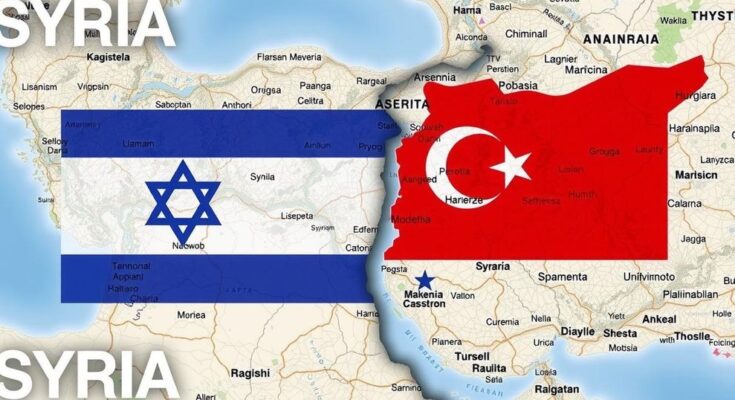Israel and Turkey are actively reshaping the geopolitical landscape of Syria following the fall of Bashar Assad. Israel seeks to establish a buffer zone to counter jihadi threats, while Turkey aims to combat Kurdish influence along its border. Local perspectives from the Golan Heights reveal mixed sentiments regarding security and territorial changes. Both nations are driven by security priorities and broader regional ambitions post-Assad.
Recent developments in Syria have showcased significant shifts in territorial control and political dynamics following the recent overthrow of dictator Bashar Assad. Israel has swiftly moved to secure its interests along the border, establishing a buffer zone previously set by a ceasefire agreement that lasted half a century. As concerns rise over the presence of Islamist factions, Israeli Prime Minister Benjamin Netanyahu has made it clear that Israel will not allow jihadi groups to exploit the vacuum left by Assad’s ousting.
Significantly, the Israeli military’s actions in the Golan Heights are bolstered by their historical claims as well as their strategic necessity; control of this area enables crucial surveillance of Syrian troop movements. The Golan Heights is not merely valuable territory but also an essential agricultural resource for Israel. Amidst these tensions, local Druze leaders express both relief at the fall of Assad and cautious optimism regarding the implications for their security.
Simultaneously, Turkey is reallocating its influence over a broad expanse of northern Syria, driven by a desire to counter Kurdish territorial aspirations linked to the PKK, a designated terrorist organization in Turkey. Under President Recep Tayyip Erdogan, Turkish-backed forces, namely the Syrian National Army, have made territorial gains from the Kurdish Syrian Democratic Forces (SDF), signaling Ankara’s commitment to shaping the post-Assad Syrian architecture. Erdogan’s strategy includes the aspiration of establishing a buffer zone across the 900-kilometer Syrian-Turkish frontier to consolidate Turkish security interests.
The ongoing crisis in Syria has led to a fragmented power structure and a volatile situation following the downfall of Bashar Assad. For decades, Syria has been embroiled in conflict, exacerbated by Ahmed al-Sharaa’s Islamist factions. As various foreign powers assert their influence, the geopolitical landscape evolves, particularly impacting Israel and Turkey. Both countries aim to stabilize their borders, address security concerns, and exert control over Syrian territory while navigating the challenges posed by local and international reactions to the shifting governance in Syria. The interests of both nations converge as they address mutual threats and aim to prevent potential extremists from establishing a foothold.
In summary, the recent geopolitical events surrounding Syria emphasize the active roles of both Israel and Turkey in shaping the future of the region. Israel’s concern over jihadi groups filling the void left by Assad and Turkey’s aim to counter Kurdish influence illustrate a broader effort to secure their respective borders and influence. The aftermath of Assad’s regime continues to engender complex political and military actions as these nations attempt to navigate a transforming landscape in Syria.
Original Source: www.jpost.com




